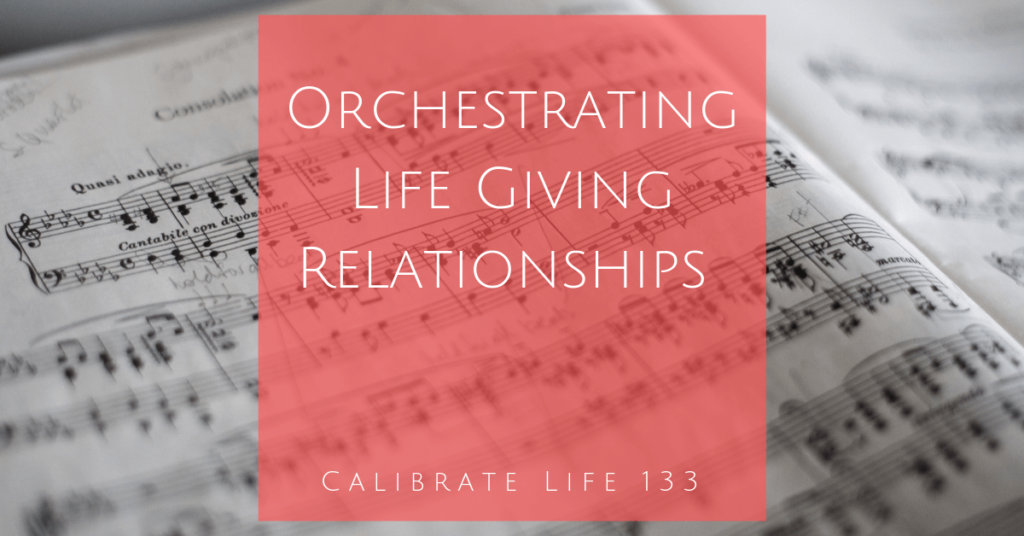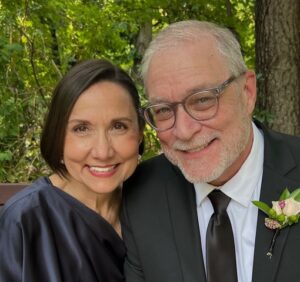Podcast: Play in new window | Download

For a relationship to be nurturing, life-giving, and active, it has to bring some value to all of the participants. The most valuable value is love, friendship, and mutual companionship. But, particularly of those of you who orchestrate relationships, in this episode we are going to the importance of orchestrating relationships and why life-giving content is important in and for the relationship.
Orchestrating Life-Giving Relationships
A lot of podcasts begin with people thinking they and their lives are interesting enough to just open mics, horse around, talk about the trees they see out their window, and because they are such engaging wonderful people, the podcast will get traction. Honestly, there just aren’t very many people on the planet that are that interesting.
With a podcast the relationship is important. People have to know something about you, your dreams, your heart, the things you are passionate about because those things establish a context for the content… hey, that is tweetable…
You have to establish a context for the content.
The relationship is important, but the content sustains the relationship.
Now, for those of you who have a role of orchestrating relationships… here’s the key thought…
Every relationship has to have some value attached.
For this podcast, with many of you, we have a relationship, but for this podcast to sustain, it has to add some value to your lives.
See, here’s the thing, we have a bias that tells us that a relationship is something we should expect nothing from, it is for the sake of loving someone. In a way… yes, absolutely, but those of you who are on mission orchestrating relationships, think a little deeper.
If you are a person who orchestrates relationships, I challenge you to think about the value added in those relational gatherings. If you are a small group leader, or you are developing a team, or you meet with a group as a participant, or you are orchestrating leadership growth through relationship, enjoying the company or the presence of one another is important, but it will not be enough to sustain the intention of the relationship long term.
I orchestrated small groups for pastors for almost 20 years.
I observe over and over and over again, for a relationship to be nurturing, life-giving, and active, it has to bring some value to all of the participants. The most valuable value is is love, friendship, and mutual companionship. Here’s a few other ways relationships add value to our lives that we might not think about.
- Personal or leadership growth as a result of interaction. Each are growing, perhaps in different ways or on different levels, but through example, observation, and conversation, they are growing and they feel the difference the interactions are making in their lives.
- Sounding boards. We all need people in our lives that we can say things out loud that we may not have fully processed to get feedback and input.
- A safe place. Everyone needs people in their lives who understand their context (in the same boat) that will help them navigate rough waters.
Here’s one of my life lessons… when you group people together, and the grouping is only focused on eating, having fun, and just getting to know one another, over time (usually within 3 to 6 months) the group starts to deteriorate. While everyone likes one another, it simply isn’t worth the expenditure of time to make it happen… in other words, the time invested in the the gathering is not worth the return unless some value, either tangible or intangible.
Its not only about what we gain, but it is also about what we have the opportunity to GIVE. Both gaining from the relationship and giving to the relationship in a meaningful and significant way is important to sustaining the contact of the relationship.
A group or gathering where relationship is the aim is strongest when everyone has something to GIVE and something to GAIN from the connection.
Application to podcasts, small groups… and life…
Banter in a podcast is okay, its not really our style. Banter and just having fun in a relational context is essential. But there must be a growth factor, a value added factor.
If you orchestrate relationships through mentoring, small groups, leadership development teams, etc., YOU are the one who has to be thinking about and orchestrating value.
In your family and friendships it is much more organic. It is about being and living life together. Don’t force it, guide it. But it wouldn’t hurt to ask yourself the question, “How can I add value to the other person?” It may be through the love you give, it may be through a willingness to be the person who listens, but it may be a willingness to intentionally give them something that someone else invested in you.



